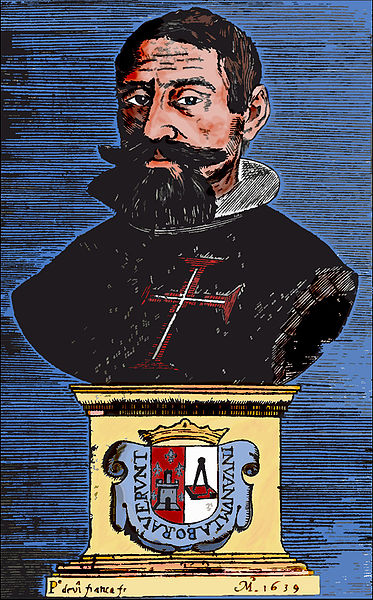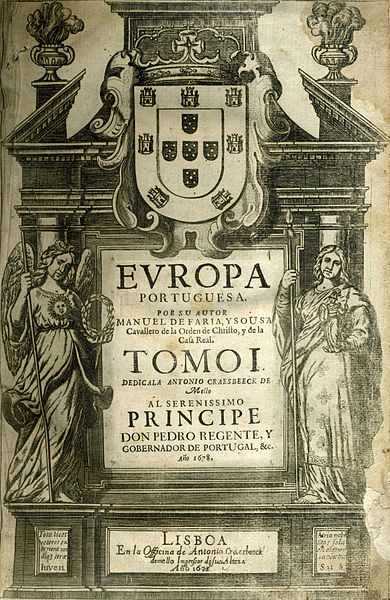<Back to Index>
- Historian Manuel de Faria e Sousa, 1590
- Painter Cornelis Ketel, 1548
- 22nd and 24th President of the United States Stephen Grover Cleveland, 1837
PAGE SPONSOR


Manuel de Faria e Sousa (Spanish: Faria y Sousa; 18 March 1590 - 3 June 1649) was a Portuguese historian and poet during the period of the Iberian Union, frequently writing in Spanish.
He was born of an ancient Portuguese family, probably at Pombeiro, studied in Braga for some years, and when about fourteen entered the service of the Bishop of Porto. With the exception of about four years, from 1631 to 1634, during which he was a member of the Portuguese embassy in Rome, the greater part of his later life was spent at Madrid, and there he died, after much suffering, in June 1649.
He was a laborious, peaceful man; and a happy marriage with Catarina Machado, the "Albania" of his poems, enabled him to lead a studious domestic life, dividing his cares and affections between his children and his books. His first important work, an Epitome de las historias Portuguezas (Madrid, 1628), was favorably received; but some passages in his enormous commentary upon Portuguese epic Os Lusíadas, the poem of Luís de Camões, excited the suspicion of the inquisitors, caused his temporary incarceration, and led to the permanent loss of his official salary. In spite of the enthusiasm which is said to have prescribed to him the daily task of twelve folio pages, death overtook him before he had completed his greatest enterprise, a history of the Portuguese in all parts of the world.
Several portions of the work appeared at Lisbon after his death, under the editorship of Captain Faria e Sousa: Europa Portugueza (1667, 3 vols.); Ásia Portugueza (1666 - 1675, 3 vols.); África Portugueza (1681). As a poet Faria e Sousa was nearly as prolific; but his poems are vitiated by the prevailing Gongorism of his time. They were for the most part collected in the Noches claras (Madrid, 1624 - 1626), and the Fuente de Aganipe, of which four volumes were published at Madrid in 1644 - 1646. He also wrote, from information supplied by P.A. Semmedo, Imperio de China i cultura evangelica en ~l (Madrid, 1642); and translated and completed the Nobiliário of the Count of Barcelos.
There are English translations by J. Stevens of the History of Portugal (London, 1698), and of Portuguese Asia (London, 1695).